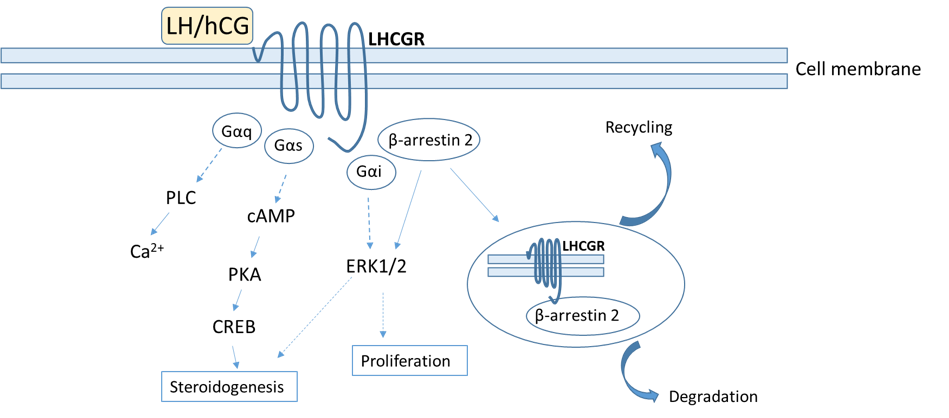MOLECULAR AND PHYSIOLOGICAL DIFFERENCES BETWEEN LH AND HCG
MOLECULAR AND PHYSIOLOGICAL DIFFERENCES BETWEEN LH AND HCG
Pituitary luteinizing hormone (LH) and placental human choriogonadotropin (hCG) are two
heterodimeric glycoprotein hormones playing key roles in reproduction and development. They bind the same receptor (LHCGR), a G protein-coupled receptor (GPCR) expressed in the ovary, and activate hormone-specific patterns of intracellular signaling pathways. LH is linked to follicular growth and luteinization through activation of proliferative and anti-apoptotic signals in ovarian cells. hCG is produced in pregnancy when progesterone synthesis is required to support the maintenance of the corpus luteum, angiogenesis, and fetal development. The aim of this study is to characterize the different functions and differences between these two hormones improving ovarian stimulation protocols applied in assisted fertilization.


